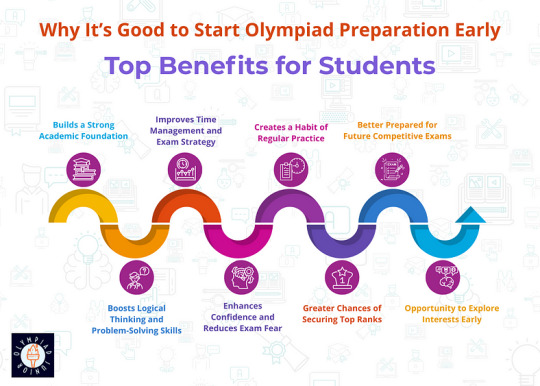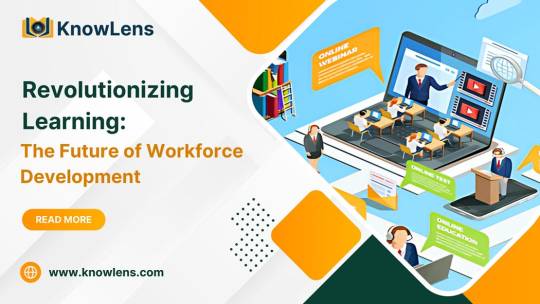#skills Development
Explore tagged Tumblr posts
Text

Career Plan.
And more careers.
36 notes
·
View notes
Text
#ProjectBatman Threat Level!


So I've been having fun talking to some IA lately, and I asked them to classify the level of threat that I present, I described an individual and he classified it as such. He stated that I present a low risk of starting any threatening situations, but also that I'm highly capable of harm. (which is kinda the point of Batman).



They said I could be useful in extreme situations, and that has always been the focus of my training so I asked what other skills I could develop to be even more useful if needed. And that's the list above.



And this was the order they said I could develop, I'm curious about it. I'm already studying different languages and coding, so I'm thinking about doing a first response medical course and maybe a survival skills one!

#batman#project batman#bruce wayne#martial arts#training#fitness#exercise#work out#kung fu#duolingo#polymath#polyglot#threat level#threat#first response#skills development#defense specialist#budoblr#superhero fitblr#firblr#coding#emergency response#survival skills#medical skills#AI conversations
2 notes
·
View notes
Text
Introduction
The field of computer science has grown exponentially in recent years, becoming one of the most sought-after disciplines for students aiming to build rewarding and futuristic careers. Whether you’re passionate about programming, fascinated by artificial intelligence, or determined to safeguard digital systems, computer science offers a variety of career options. If you’re a student looking to explore opportunities, this guide will help you navigate some of the most promising paths in the field.
For students eager to master coding and software design, enrolling in a Computer Science Course in Yamuna Vihar can provide a strong foundation and hands-on experience in programming concepts and real-world application development. READ MORE
Learn Computer Science Now :-
#computer science#computer science course#Computer Science Course in Yamuna Vihar#Computer Science Course in Uttam Nagar#skills#skills Development#ms excel
2 notes
·
View notes
Text
"Nevertheless, you must try, if only for your own sake. Curiosity is your best hope, and dogged determination your best weapon. Learn, please, if only out of spite."
@kanagenwrites


97K notes
·
View notes
Text
Why It’s Good to Start Olympiad Preparation Early — Top Benefits for Students
Introduction
When it comes to competitive exams like Olympiads, starting early is a game-changer. Olympiad exams, including Maths, Science, English, and Reasoning Olympiads, challenge students beyond school textbooks. While many students begin late, those who start Olympiad preparation early consistently perform better — not just in Olympiads, but also in academics and future competitive exams like NTSE, JEE, and NEET.
Here’s why early Olympiad preparation sets students up for long-term success. 1.Builds a Strong Academic Foundation Olympiad exams focus on deep understanding of basic concepts. Starting early gives students ample time to build a solid foundation in subjects like Mathematics, Science, and English. This helps them excel in school as well.
2.Boosts Logical Thinking and Problem-Solving Skills Olympiads encourage analytical thinking, application-based learning, and reasoning. These life-long skills are better developed when cultivated early, making students sharper and more confident in every subject.

3. Improves Time Management and Exam Strategy By practicing early, students become familiar with Olympiad patterns, learn to manage time, and develop smart strategies to handle tricky questions — all before the pressure builds up.

4. Greater Chances of Securing Top Ranks With more time to prepare, early starters have a higher success rate in clearing national and international Olympiad exams. Top ranks mean certificates, medals, and academic recognition.
5. Better Prepared for Future Competitive Exams Olympiad students are already trained to solve application-based and logical questions. This gives them a significant head-start in future exams like JEE, NEET, NTSE, and CUET.

Final Thoughts
Starting Olympiad preparation early is not about adding pressure — it’s about unlocking potential. With the right guidance and resources, early prep becomes fun, enriching, and deeply rewarding. Whether your child is in Class 1 or Class 5, the best time to begin is now.
Looking for structured Olympiad programs for young learners?
Visit Olympiad Junior — India’s trusted platform for Olympiad courses, study materials, and mock test series for Classes 1–8.

0 notes
Text
Revolutionizing Learning: The Future of Skills Development Opportunities
In today’s fast-paced, tech-driven world, companies must prioritize skills development opportunities to remain competitive and foster a thriving workforce. Learning and development (L&D) isn’t just an HR responsibility — it’s a critical business driver. A study by Bersin by Deloitte reveals that organizations with strong learning cultures enjoy 30–50% higher employee retention and a 46% better return on training investments.

Limitations of Traditional Learning Models
Despite the importance of continuous learning, traditional training methods often fall short. A recent survey shows that 74% of Millennial and Gen Z employees would consider quitting if they lack meaningful skills development opportunities and the freedom to guide their own learning. Conventional instructor-led training is typically rigid, one-size-fits-all, and costly. These barriers often prevent learners — especially those juggling work, personal commitments, or geographic constraints — from accessing impactful learning experiences.
This growing disconnect is prompting L&D professionals to seek out more innovative, flexible, and scalable ways to deliver skills development opportunities to employees.
The Future of Workforce Learning
Modern learning strategies emphasize autonomy and relevance. E-learning platforms are leading this evolution, offering on-demand access to personalized skills development opportunities. IBM reports that companies using digital learning tools see an 18% higher engagement rate and 26% more revenue per employee.
One cornerstone of this transformation is the Learning Management System (LMS) — a centralized, digital platform that enables course distribution, learner engagement, collaboration, and real-time progress tracking.
Key Features Driving Better Skills Development Opportunities
1. Personalized Learning Journeys Using real-time data and analytics, L&D teams can tailor learning paths to suit each individual’s needs, job role, and skill level. Personalized skills development opportunities ensure that employees learn what’s relevant to them — improving both engagement and knowledge retention.
2. Microlearning and Bite-Sized Content Short, targeted learning modules fit better into busy workdays and cater to modern attention spans. Daily micro-lessons focused on specific skills help employees steadily grow their knowledge without overwhelming them.
3. Gamification for Motivation Incorporating game elements — like points, badges, and leaderboards — adds an element of fun while boosting engagement. Employees are more likely to take ownership of their skills development opportunities when they can track their progress in an interactive way.
4. AI-Powered Assessments AI tools can evaluate learning outcomes, adapt course materials, automate feedback, and identify knowledge gaps — making skills development opportunities more personalized and responsive. However, human oversight remains essential to ensure fairness and transparency in automated evaluations.
5. AI Chatbots for Real-Time Support AI-driven chatbots enhance the learning experience by offering real-time guidance, answering queries, and helping learners stay on track. While they can’t replace human trainers, they significantly increase accessibility and responsiveness.
6. Multi-Channel Content Delivery Diversifying content formats — text, video, audio, interactive simulations — makes learning more inclusive and engaging. A multi-channel approach caters to different learning styles and makes skills development opportunities more effective and enjoyable.
Conclusion: Embracing the Future of Learning
As the workplace continues to evolve, so must the way companies deliver learning. Modern tools empower L&D professionals to offer highly personalized, flexible, and effective skills development opportunities. Tailored training for specific roles and departments not only maximizes relevance but also minimizes time wasted on unnecessary content.
By investing in smarter learning strategies, companies can boost employee satisfaction, increase retention, and improve overall performance. The future of workforce development is digital, dynamic, and driven by continuous skills growth — and now is the time to embrace it.
0 notes
Text
youtube
Empower Your Team with Advised Skills Training.
Discover how Advised Skills delivers top-quality training programs for your team! Choose from On-Demand Learning, In-House Training, or Live Online Sessions. Learn more about our seamless ordering process and flexible delivery methods that ensure your team's success.
Key Features: 🔹Customized training programs for corporate teams 🔹Flexible delivery options: On-Demand, In-House, Live Online 🔹Easy ordering process in just 5 steps 🔹Industry-recognized certifications
Get your team ready for success – contact us today! Visit us: https://www.advisedskills.com/corporate-training
#AdvisedSkills #TeamTraining #CorporateTraining #InHouseTraining #OnlineLearning #SkillsDevelopment #ProfessionalGrowth
1 note
·
View note
Text
India Workers Seek New Jobs: Aon Study: Rediff Moneynews
Aon study reveals 82% of Indian workers are considering job changes in the next year, driven by benefits, work-life balance, and skills development. Read more. New Delhi, Apr 30 (PTI) Majority of workers in India are either in the process of moving employers or might seek new employment in the next 12 months, according to a study by leading global professional services firm Aon plc. Aon plc’s…
#aon#benefits#employee sentiment#employment#india#job changes#skills development#study#work-life balance#workers
0 notes
Text
#mba#internationalstudies#businesssstudies#finance management#skills development#leadershipdevelopment
0 notes
Text
Skills Development and Reskilling for the Future of Work
The future of work is rapidly evolving, driven by technological advancements, automation, and shifting business dynamics. As industries change and new technologies emerge, the demand for specific skills is also undergoing a transformation. Job roles are being redefined, and many positions are either being automated or evolving into something entirely new. In response, businesses must place greater emphasis on skills development and reskilling their workforce to remain competitive and prepare employees for the changing landscape of work.
In this blog, we’ll delve deeper into the importance of skills development and reskilling, and provide five essential pointers for businesses to ensure their workforce is ready for the future of work.
1. Emphasizing Lifelong Learning and Adaptability
The future of work will demand that employees not only possess specialized technical skills but also demonstrate a high degree of adaptability and a willingness to learn new things. As automation and artificial intelligence (AI) transform industries, employees must be agile enough to transition from one role or task to another. The ability to learn continuously and to remain curious about emerging trends will be a critical factor in career longevity.
Organizations that foster a culture of lifelong learning will help ensure their employees remain competitive. This means prioritizing continuous education, training, and development at all levels of the organization. Whether through formal courses, mentorship programs, or self-paced learning tools, the goal is to create an environment where employees feel empowered to keep learning throughout their careers.
Key Takeaway: Encourage a mindset of continuous learning and adaptability, offering employees access to ongoing education that keeps their skills relevant. In turn, this benefits the organization by having a workforce that can pivot as needed.
2. Balancing Hard and Soft Skills
The future workplace will require a diverse skill set that blends both hard skills (technical expertise) and soft skills (interpersonal and cognitive abilities). While technical knowledge like data analysis, software development, and digital literacy will remain in demand, soft skills such as emotional intelligence, leadership, creativity, problem-solving, and effective communication are becoming increasingly important.
AI and automation may replace many routine tasks, but the human elements of work — such as decision-making, creativity, empathy, and collaboration — cannot be easily replicated by machines. As such, HR teams and managers must focus on holistic skills development, offering training that nurtures both technical abilities and interpersonal competencies.
Employers should invest in training programs that develop both types of skills. For example, while an employee might take a course on coding, they should also have the opportunity to develop leadership skills through mentorship or collaborative projects.
Key Takeaway: Focus on building a balanced skill set that includes both technical and soft skills. Employees should be prepared for technical advancements while also excelling in areas that require human insight and creativity.
3. Reskilling for Displaced Workers
With the rise of AI, automation, and machine learning, many traditional job roles are being automated or fundamentally changed. As routine tasks become automated, certain jobs will naturally become obsolete, while new jobs requiring advanced skills will emerge. This creates a challenge for workers who may find their skills no longer aligned with market demands.
Reskilling is the process of helping employees transition from their current roles to new ones that are more in line with future business needs. For example, workers whose tasks are being automated may need reskilling in emerging fields like cybersecurity, AI management, data science, or digital marketing. By offering reskilling programs, employers can help workers stay relevant and contribute to the organization in new ways, reducing the negative effects of job displacement.
Reskilling programs should include not only formal training but also hands-on learning experiences, such as simulations, job shadowing, or short-term projects, to help employees gain practical experience in their new roles. Additionally, organizations can offer support in career counseling, job placement, and the development of new professional networks to ease the transition for displaced workers.
Key Takeaway: Provide comprehensive reskilling initiatives for workers at risk of displacement due to automation, enabling them to transition into new, high-demand roles. This also helps reduce the potential social costs associated with job losses.
4. Leveraging Technology for Scalable Learning
Technology is revolutionizing the way learning is delivered. With the growing need for continuous development, organizations are turning to learning management systems (LMS), AI-powered training tools, and virtual learning environments to offer scalable, personalized training to their employees. These technologies provide employees with easy access to learning materials, interactive modules, and resources that allow them to learn at their own pace and convenience.
The beauty of using technology in skills development is that it allows organizations to create personalized learning paths for employees. With AI and data analytics, businesses can track employee performance, identify skill gaps, and recommend specific courses that align with individual learning needs and career aspirations.
Moreover, technologies like virtual reality (VR) and augmented reality (AR) are increasingly being used to provide immersive, hands-on experiences. For example, in industries like healthcare, VR can simulate real-life scenarios for training, while in retail, AR can teach employees about new product lines in a fully interactive manner.
Key Takeaway: Use modern learning technologies to deliver scalable and personalized training experiences. This allows employees to upskill and reskill efficiently, without disrupting their work schedules.
5. Collaboration Between Employers, Educational Institutions, and Governments
To effectively address the evolving skills gap, it is essential for businesses, educational institutions, and governments to collaborate. The skills gap — the mismatch between the skills employees have and the skills employers need — is a growing concern. By working together, these entities can ensure that training programs and curricula are aligned with current and future workforce needs.
For example, businesses can partner with universities and vocational schools to develop training programs tailored to the skills that are in demand. Similarly, governments can offer incentives or grants to support workforce development initiatives, such as funding reskilling programs or offering tax credits for companies that invest in employee training.
These collaborations also help shape policies that support workforce development and ensure that workers are not left behind as industries change. Public-private partnerships can play a key role in creating a workforce that is both skilled and adaptable, ready for the challenges and opportunities of tomorrow.
Key Takeaway: Strengthen partnerships with educational institutions and government agencies to create effective workforce development initiatives. Collaboration helps ensure that employees are trained in the skills needed by the market and can successfully transition into new roles.
Conclusion
As we look to the future, it is clear that the skills landscape is changing at a rapid pace. To thrive in this new environment, both employers and employees must embrace skills development and reskilling as central components of success. By fostering a culture of lifelong learning, balancing technical and soft skills, investing in reskilling programs for displaced workers, leveraging technology to scale learning, and collaborating across sectors, businesses can prepare their workforce for the challenges ahead.
The future of work is not about avoiding change; it’s about being prepared for it. Organizations that proactively invest in developing and reskilling their workforce will be better positioned to lead in an ever-changing world of work. For employees, staying adaptable and committed to continuous learning will ensure that they remain relevant and competitive in the workforce of tomorrow.
To learn more, visit HR Tech Pub.
0 notes
Text
Emergencies can strike without warning, making preparation vital. A portable first-aid kit is a must-have for addressing minor injuries and providing initial care in critical situations. Whether you’re at home, work, or traveling, a well-stocked first-aid kit can make all the difference. For those seeking to enhance their preparedness, healthcare training programs in Pikesville, Maryland provide valuable insights into assembling and using first-aid kits effectively.
0 notes
Text
How to Continuously Reinvent Yourself Throughout Your Career– Asrar Qureshi’s Blog Post #1074
#Asrar Qureshi#Blogpost1074#Growth Mindset#Lifelong Learning#Networking#Pharma Industry#Pharma Veterans#Reinventing#Skills Development#Social Skills#Soft Skills
0 notes
Text

4 Key Concepts Every Computer Science Student Should Master Early
Building a strong foundation in computer science starts with mastering the right concepts. This infographic highlights 4 fundamental topics that every computer science student should understand early in their learning journey. These concepts not only support academic success but also prepare learners for real-world applications in software development, data structures, algorithms, and system design.
Whether you're pursuing a career in programming, IT, or software engineering, grasping these core ideas is crucial to long-term success in the tech industry. Ideal for beginners, this visual guide simplifies complex topics into easily digestible insights.
Stay ahead by reinforcing your basics and unlocking better learning outcomes in computer science.
📚 Learn Computer science: Attitude Academy
📍 Visit Us: Yamuna Vihar | Uttam Nagar
📞 Call: +91 9654382235
🌐 Website: www.attitudetallyacademy.com
📩 Email: [email protected]
#computer science#computer technology#java programming language#html training#css tips#pythonprogramming#skills development
0 notes
Text
New Zealand's Skills Gap: Insights from PIAAC Data
The Skills We’re Missing: How PIAAC Data Highlights New Zealand’s Critical Gaps New Zealand faces a significant challenge: a large portion of our adult population lacks essential skills in literacy, numeracy, and problem-solving. The Programme for the International Assessment of Adult Competencies (PIAAC) reveals that 26% of adults are at Level 1 or below in literacy, with a similar gap in numeracy. These skills are crucial not just for personal success, but for business productivity and national prosperity. The good news? We can take action. By investing in adult education, workplace training, and community programs, we can close the skills gap and build a more prosperous New Zealand. Countries like Finland have successfully tackled similar challenges—showing that it’s possible to make a change. The time to act is now. Together, we can equip every New Zealander with the skills they need to thrive in an increasingly complex world.
PIAAC Data Sheds Light on New Zealand’s Gaps Have you ever wondered if New Zealand’s workforce is truly equipped to face the challenges of a rapidly changing world? While we’re known for our natural beauty and innovative spirit, a closer look at the skills of our adult population paints a different picture. Enter PIAAC—the Programme for the International Assessment of Adult Competencies. This…

View On WordPress
#adult education#adult skills gap#automation#digital skills#economic growth#education policy#financial literacy#Lifelong learning#Literacy#Māori#New Zealand#New Zealand workforce#Numeracy#Pacific communities#PIAAC#problem-solving#productivity gap#skills assessment#skills development#social impact#upskilling#workplace productivity
0 notes
Text
ACCA Report: Economic Uncertainty and Talent Shortages Threaten Asia Pacific’s Growth in 2025
The latest Global Economic Conditions Survey (GECS) by ACCA and IMA highlights declining business confidence and economic uncertainty in Asia Pacific as 2025 approaches. Confidence among finance professionals has hit its lowest since Q1 2020 due to concerns over a sluggish Chinese economy, U.S. tariff risks, and geopolitical instability. Economic slowdown In Malaysia, declining business…
0 notes